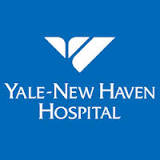SPECT/CT Imaging of Skeletal Muscle Perfusion
| Status: | Recruiting |
|---|---|
| Conditions: | Peripheral Vascular Disease, Diabetes |
| Therapuetic Areas: | Cardiology / Vascular Diseases, Endocrinology |
| Healthy: | No |
| Age Range: | 18 - Any |
| Updated: | 10/29/2017 |
| Start Date: | May 2016 |
| End Date: | December 2020 |
| Contact: | Albert J. Sinusas, MD |
| Email: | albert.sinusas@yale.edu |
| Phone: | 203-785-5005 |
SPECT/CT Imaging of Skeletal Muscle Perfusion in Healthy Control Subjects and Patients With Peripheral Arterial Disease: Pilot Clinical Study
This study will use SPECT/CT imaging to assess the effect of percutaneous revascularization
treatments in patients with Peripheral arterial disease and diabetes mellitus, in whom the
disease can progress more quickly than in patients without diabetes.
treatments in patients with Peripheral arterial disease and diabetes mellitus, in whom the
disease can progress more quickly than in patients without diabetes.
Peripheral arterial disease (PAD) is a progressive atherosclerotic disease of the lower limbs
that affects 8 to 10 million Americans, and is more prevalent and progresses more quickly in
patients with diabetes mellitus (DM). There is a critical need for a standard non-invasive
approach to assess response to treatment by three-dimensional (3D) perfusion to vascular
territories of the feet in PAD patients. Assessing the response to treatment is particularly
important in DM patients, who suffer from poor distal runoff and often require more distal
revascularization to achieve limb salvage.
In this clinical study, the investigators will evaluate lower extremity skeletal muscle
perfusion in the feet of healthy controls and PAD patients who are undergoing
revascularization using conventional sodium iodide SPECT/CT imaging, as well as dynamic
SPECT/CT imaging with a unique cadmium zinc telluride (CZT) system.
Healthy control subjects (n=15) will be recruited from Yale University and the greater New
Haven area. In addition to healthy control subjects, 35 PAD patients with previously
diagnosed diabetes will be recruited from Vascular Surgery and Interventional Cardiology at
Yale-New Haven Hospital. Patients who are undergoing revascularization procedures will be
identified and asked to participate in the imaging study prior to their revascularization
procedure and will be imaged once again 1-3 days following revascularization, prior to
hospital discharge.
Subjects will undergo resting perfusion imaging of the feet using two separate SPECT/CT
systems. They will be injected with a low dose radiotracer. In healthy control subjects,
arterial blood will be continuously sampled from the radial artery for calculation of a blood
input function and K1 values for foot angiosomes. Additionally, we will sample heated venous
"arterialized" blood from a hand vein retrograde to evaluate the potential for heated venous
blood in the calculation of a blood input function, thus eliminating the need for arterial
access in future PAD patient studies.
that affects 8 to 10 million Americans, and is more prevalent and progresses more quickly in
patients with diabetes mellitus (DM). There is a critical need for a standard non-invasive
approach to assess response to treatment by three-dimensional (3D) perfusion to vascular
territories of the feet in PAD patients. Assessing the response to treatment is particularly
important in DM patients, who suffer from poor distal runoff and often require more distal
revascularization to achieve limb salvage.
In this clinical study, the investigators will evaluate lower extremity skeletal muscle
perfusion in the feet of healthy controls and PAD patients who are undergoing
revascularization using conventional sodium iodide SPECT/CT imaging, as well as dynamic
SPECT/CT imaging with a unique cadmium zinc telluride (CZT) system.
Healthy control subjects (n=15) will be recruited from Yale University and the greater New
Haven area. In addition to healthy control subjects, 35 PAD patients with previously
diagnosed diabetes will be recruited from Vascular Surgery and Interventional Cardiology at
Yale-New Haven Hospital. Patients who are undergoing revascularization procedures will be
identified and asked to participate in the imaging study prior to their revascularization
procedure and will be imaged once again 1-3 days following revascularization, prior to
hospital discharge.
Subjects will undergo resting perfusion imaging of the feet using two separate SPECT/CT
systems. They will be injected with a low dose radiotracer. In healthy control subjects,
arterial blood will be continuously sampled from the radial artery for calculation of a blood
input function and K1 values for foot angiosomes. Additionally, we will sample heated venous
"arterialized" blood from a hand vein retrograde to evaluate the potential for heated venous
blood in the calculation of a blood input function, thus eliminating the need for arterial
access in future PAD patient studies.
Inclusion Criteria:
- CONTROLS
1. At least 18 years of age
2. Normal (0.9-1.2) Ankle Brachial Index
- PAD PATIENTS
1. At least 18 years of age
2. Evidence of significant obstructive disease for one or multiple lower extremity
arteries, as identified by CT angiography, ultrasound, or MR imaging.
3. Previously diagnosed diabetes mellitus (type I or II), based on any of the
following criteria: fasting plasma glucose great than 126 mg/dl on 2 separate
occasions, glycated hemoglobin (HbA1c) greater than 6.5% on 2 separate occasions,
fasting plasma glucose greater than 200 mg/dl 2 hours following an oral glucose
tolerance test on 2 separate occasions, or fasting plasma glucose and HbA1c above
normal limits on same visit.
Exclusion Criteria:
- CONTROLS
1. Unable to give informed consent
2. Enrolled in another trial
3. Preexisting medical conditions affecting the vascular system including, but not
limited to: Coronary Artery Disease, Peripheral Arterial Disease, diabetes,
cancer, hypertension, history of smoking
4. Pregnant or nursing
- PAD PATIENTS
1. Unable to give informed consent or follow-up
2. Enrolled in another trial
We found this trial at
1
site
20 York St, N20 York St,
New Haven, Connecticut 06520
New Haven, Connecticut 06520
(203) 688-4242

Phone: 203-785-5005
Yale-New Haven Hospital Relying on the skill and expertise of more than 4,500 university and...
Click here to add this to my saved trials